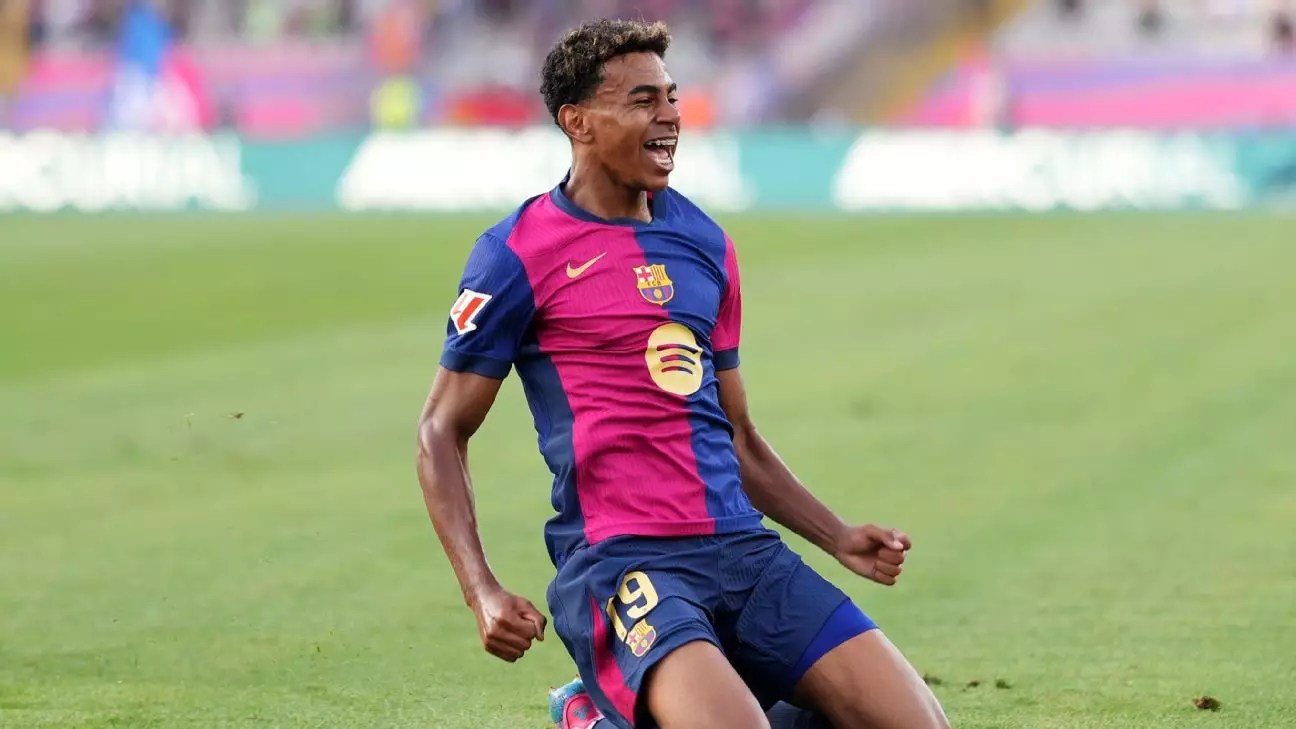Barcelona Football Club has recently made headlines with its president, Joan Laporta, revealing that the club turned down a staggering offer of €250 million for young forward Lamine Yamal. This decision is crucial as it indicates Barcelona’s strategic approach to player management amid lingering financial uncertainties. Despite rumors suggesting Paris Saint-Germain aimed to secure Yamal as a successor to Kylian Mbappé, who transferred to Real Madrid, Laporta’s stance points to a broader philosophy regarding player retention and development.
In the interview with Barcelona’s television network, Laporta emphasized that the decision was not motivated purely by financial considerations. Though the club has faced significant economic challenges, he firmly expressed that player transfers were guided by sporting ambitions rather than fiscal necessity. This insight shapes the narrative around the club’s future direction, prompting fans and analysts to evaluate how Barcelona balances its financial realities with its aspirations for talent retention.
Lamine Yamal’s emergence as a pivotal player since his debut at the tender age of 15 marks him as a prodigious talent in contemporary football. With over 60 appearances for Barcelona and a vital contribution to Spain’s recent European Championship success, Yamal quickly garnered attention as a player with significant potential. His abilities have not gone unnoticed; Cesc Fabregas, a revered figure in football, lauded him as potentially the biggest talent in the world.
However, this spotlight comes with concerns about the pressures of early exposure in senior competitions. The experiences of other young talents, such as Barcelona’s Pedri, who has faced injury setbacks after heavy international commitments, highlight the need for careful management. The weight of expectations can be both a blessing and a peril for emerging stars like Yamal, and the club’s management must navigate these challenges wisely to ensure his long-term success and well-being.
The ongoing tension between club and national team interests has drawn significant attention, particularly when it involves younger players like Yamal. Spanish coach Luis de la Fuente’s assertion that clubs should manage player fitness and rest raises a critical discussion about the responsibility of each entity. Laporta’s remark that “it’s the clubs that pay the players” underscores a valid point in this debate, highlighting the financial investment clubs make in nurturing talent.
In a practical illustration of this stance, Yamal recently returned to Barcelona with a hamstring strain incurred during an international match against Denmark, thus missing subsequent games for Spain. This situation reflects the delicate balance clubs must strike: supporting national teams while also safeguarding their players’ health and fitness. The need for mutual understanding between national managers and club stakeholders is more essential than ever to cultivate the success of young players without overexposing them to the rigors of senior football.
Barcelona’s decision to retain Yamal could yield strategic dividends in the long run. With promising statistics this season—five goals and five assists in just eleven appearances—he is part of a formidable front line that includes established stars like Robert Lewandowski and Raphinha. This synergy is crucial for the club as it targets success not only in domestic leagues but in international tournaments such as the Champions League.
As the club gears up for key upcoming matches, including significant fixtures against Sevilla and Bayern Munich, Yamal’s availability will be critical. Fans and analysts alike will be watching intently to see if the club’s investment in nurturing his talent pays off. Should he remain healthy and continue his impressive performance trajectory, Yamal could soon emerge as not just a cornerstone for Barcelona but a standout in the global football landscape.
Lamine Yamal’s situation encapsulates the intersection of talent, ambition, and strategy at FC Barcelona. By rejecting a massive transfer offer, the club not only safeguards a budding star but also sends a clear message about its intent to build a future grounded in homegrown talent and sustainable growth. The coming months will undoubtedly be telling in both his development and the significance of this decision.


Leave a Reply